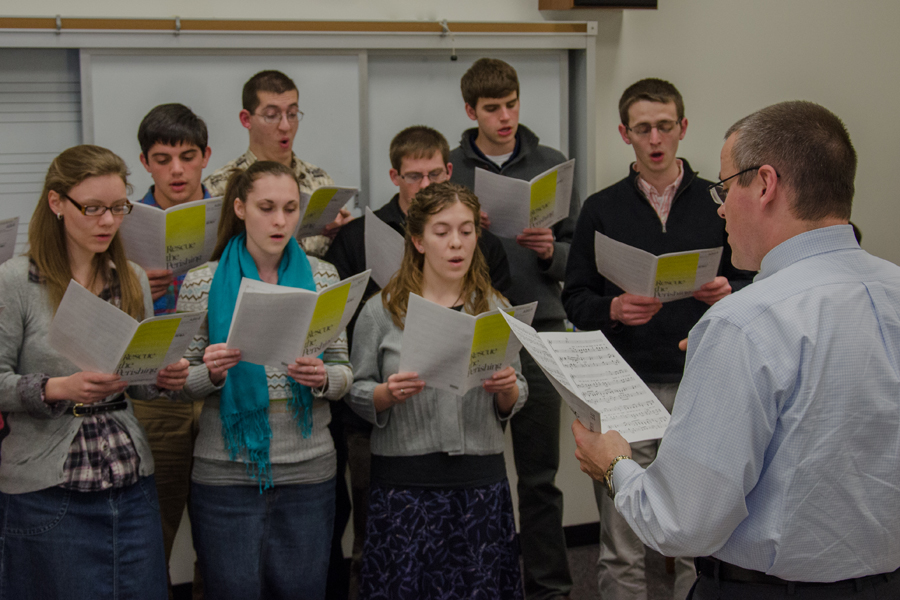For university students planning to travel on BJU mission teams during the summer, second semester is a busy time of preparation and earnest prayer.
Meetings, reading assignments and rehearsals are just a few of the ways in which team leaders prepare students for their upcoming travels.
The process began with the mission team chapel on Oct. 1. As the different team leaders presented their goals and needs, students were able to get information, express interest and apply to travel with a team. This built the foundation for the current mission teams.
This summer the University will send seven teams to South America, Australia, Africa, Antigua, China, the Western United States and Europe. The teams vary in size as well as in specific purpose.
Mr. Mark Vowels, head of the Office of Missions, said each team has unique objectives. Some of the team leaders have been planning and organizing summer trips for many years and have specific ways in which they prepare team members for their experiences during the summer. “Each team has a sense of autonomy,” Vowels said. “There is a lot of individuality with the teams, [and] we really want it to be that way.”
Dr. George Matzko, chair of the Division of Natural Science, who has been leading the Australia team since 1995, said much of the focus for his team is to help each student grow in his or her own spiritual walk during ministry.
“Every team has an overriding philosophy,” he said. “Our philosophy is to get our students from whatever spiritual level they’re on to the next spiritual level.” The ministry of the Australia team varies from year to year but includes camp ministry as well as opportunities to minister in public schools.
Dr. Dan Olinger, chair of the Division of Bible and leader of the Africa team, also highlighted the growth opportunities involved in interacting with other cultures. “One of the things I emphasize with the students [is that] in much of the world, Christians are far ahead of us spiritually,” he said. “Part of the purpose of the trip is to learn to respect cultures that are different from [ours] and not to think of [ourselves] as someone superior.”
The team will be traveling throughout Africa to Cameroon, Tanzania and Ghana and will serve in multiple locations, including an orphanage and a medical hospital. Olinger emphasized the team’s mission to serve the people of Africa by meeting their needs rather than merely playing the role of a tourist.
Many details of the trips are not certain until the teams leave. Fundraising, visas, travel itineraries and vaccinations are just a few of the obstacles that team leaders and students must overcome in preparation. Many of the teams distribute prayer cards, and some teams have individual websites, which can be accessed via BJU’s website. Olinger said the university family can support the teams by staying aware of what is going on in their preparations and keeping the teams in prayer.
“In the end you realize that what you are trying to do is something that cannot be accomplished by mere logistics,” he said. “God has to do that. [Pray for God to], first, make the logistics work, second, to prepare the hearts of the people for our ministry, and third, to prepare us to be qualified to minister.”
Students interested in exploring ministry opportunities through the University or individually are encouraged to visit the Office of Missions page under “Life at BJU” on the campus intranet.





















































